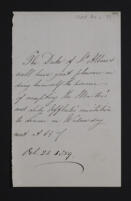Refers to the ongoing [Spanish-American] war in North America; a conflict which makes him 'thoroughly sick'. Considers it to be a step backwards, and is determined not to 'back up on senseless Congress and feeble President'. Believes that 'the men who control public opinion in the South have never got over their defeat in a war of their own making, and have longed for another war in which they should be victorious' and that 'the west was full of men who wanted war.' Remarks that he had hoped that Sir Michael [Hicks Beach] would have abandoned the succession tax, and discusses his view of the matter, and asks Sidgwick to explain the finer points of the current methods of taxation to him. Refers to an article in the April edition of Atlantic Monthly by Herr Münsterberg, a German teacher of experimental psychology. Expresses the desire to visit Sidgwick, and informs him that his brother [Henry Sidney?] now lives in the Isle of Wight. Expresses regret at the death of St Albans, of whom he speaks well.
Sans titreVernon House, Hartington Place, Eastbourne. - Caroline is at last 'really convalescent' and will stay at Eastbourne for a week; he himself goes to Welcombe tomorrow. Booa [Mary Prestwich] and Pantlin will stay with Caroline. This is a 'spick-and-span watering place', ready for a crowd which has not yet come. Is 'rather overset' by the King's death; reminds him of when he was invited, 'as a sort of typical undergraduate' to dine at Madingley [Hall] on the day of the Prince's coming to Cambridge. Only Sir George, [the Duke of] St Albans, and the Prince 'a pretty, very young boy' were there; Sir George was by some years the oldest, and now is the only survivor. Has had opportunity to observe the new King well; the old King is, politically, 'a terrible loss, with his immense authority and popularity and his tried Liberalism!'. Agrees that much of [Samuel Butler's] "Erewhon" is 'rather pretentious'. Sends love to Elizabeth. Was delighted by the picture of Robert and Julian.
Caption: "Duke of S. Albans." Signature of Mayland, photographer, at left.
